Riding a bike in Western North Carolina is an immersive experience of flying on miles of single-track trails, cruising over creeks and under the tree canopy. Yet full access to nature is challenging for mountain bikers living with disabilities.
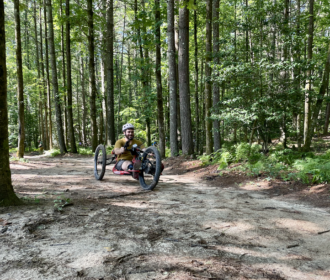

Riding a bike in Western North Carolina is an immersive experience of flying on miles of single-track trails, cruising over creeks and under the tree canopy. Yet full access to nature is challenging for mountain bikers living with disabilities.
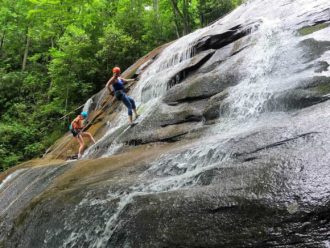
Consider one of these trips led by local guides for your next adventure in WNC (and eastern Tennessee).

The Carolina Mountain Club marks its 100th anniversary with a new book. Plus, an author uses Black Mountain as a inspiration for her YA novel, a Buddhist monk will discuss his book and Citizen Vinyl presses an album celebrating Southern music.
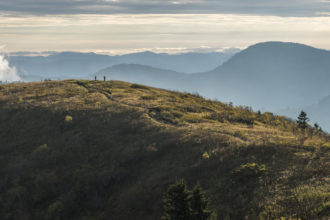
The latest Nantahala and Pisgah National Forests Land Management Plan was implemented last month and outlines land use for the next 20 years.

“The U.S. Forest Service should reconsider its mission and focus less on ‘productivity’ for tree-harvesting and more on sustaining the health and diversity of our national forest lands, streams and rivers.”

“Amid constant change, our forests desperately need intentional manipulations and disturbances. Sure, left alone, Mother Nature will reset these lands for us: But it will be done through ice storms, wildfires and catastrophic, random events.”
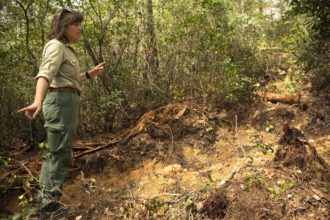
Maintaining trails in Western North Carolina’s mountain forests poses tough choices between recreation and sustainability.
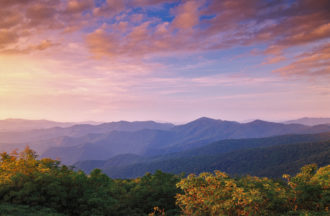
The pending approval of a U.S. Forest Service plan for the roughly 1 million acres that the Nantahala and Pisgah national forests cover in Western North Carolina is likely to influence whether a large swath of the Craggy Mountains should be open for timber harvesting or managed for recreation.
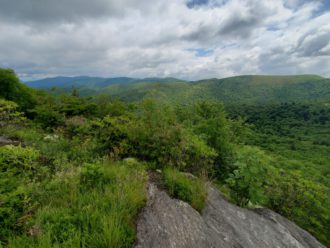
The U.S. Forest Service offered four alternative management plans for the Pisgah and Nantahala national forests in 2020. It has decided to go with a fifth alternative.
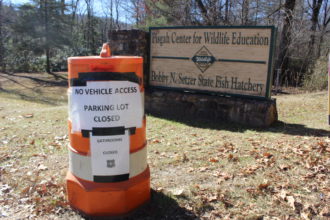
When Tropical Depression Fred tore through Western North Carolina in August, among the casualties was the Pisgah Center for Wildlife Education. The N.C. Wildlife Resources Commission’s executive board has moved to close and demolish the facility, replacing it with an expansion to the adjacent Bobby N. Setzer Fish Hatchery.
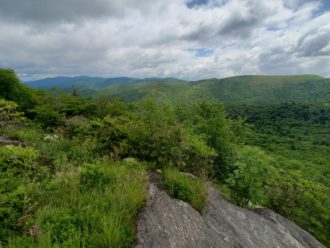
Groups in Western North Carolina are continuing their projects while the U.S. Forest Service finalizes its choices for the comprehensive 20-year plan.

“The tourism fund could be used to provide paying jobs for locals to be out in the parks and forests making sure visitors practice “leave no trace”; park only where they are supposed to; do trail work; and prevent mapless tourists from getting lost in the woods.”
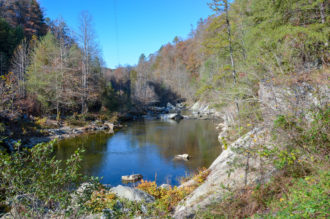
On April 22, the Southern Appalachian Highlands Conservancy shared news of a 7,500-acre donation in the Roan Highlands. That same day, Foothills Conservancy of North Carolina announced a 332-acre donation along Wilson Creek.
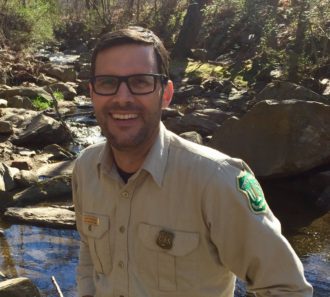
Forest supervisor James Melonas sets priorities for tenure as leader of state’s four national forests.
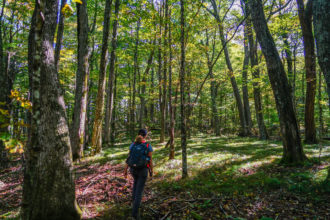
The Asheville-based nonprofit Southern Appalachian Highlands Conservancy’s work included both valuable wildlife habitats, such as the Wiles Creek and Little Rock Creek preserves, and prime farmland at risk of development. Sandy Hollar Farms in Buncombe County and Bowditch Bottoms in Yancey County were among the agricultural projects completed in 2020.
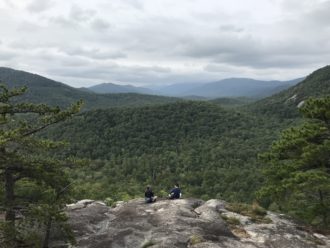
Xpress contributor Mark Barrett shares his pick of lesser-known Western North Carolina hikes with opportunities to take in the region’s autumn splendor.
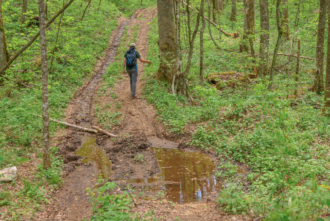
“Right now, the U.S. Forest Service is drafting the next forest management plan for the Nantahala and Pisgah national forests … and, unfortunately, the current draft is inadequate in a few very important ways when it comes to protecting water quality.”
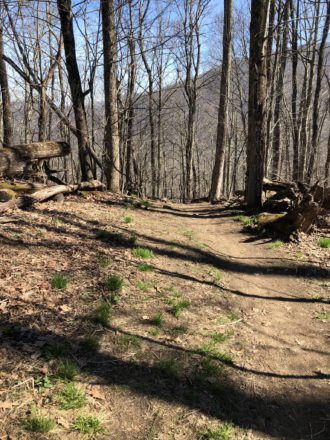
“My whole world seems to be closing,” says Danny Bernstein, an Asheville-based outdoors writer who regularly leads hikes for the Carolina Mountain Club and Friends of the Smokies. “Staying 6 feet apart is easy on the trail. But how can we have outdoor activity if almost every piece of public land is closed?”

The commission’s Democratic members passed direction for expanded community testing and contact tracing over the objections of its Republican contingent. Joe Belcher, Anthony Penland and Robert Pressley stressed their commitment to ensuring the county’s safety but expressed concern over the process by which the resolution was introduced and some of its terms.
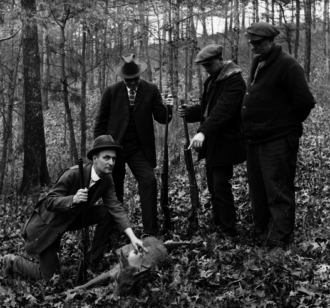
In the late fall and early winter of 1936, Pisgah National Forest invited hunters to bag stags. Though there were plenty of stipulations involved, thousands of nimrods applied to partake in the monthlong hunt.
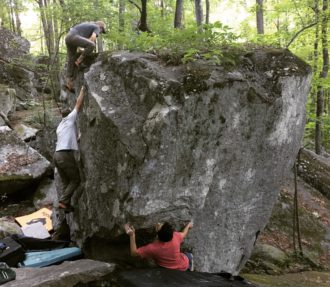
Western North Carolina is a rock climbing mini-mecca, featuring faces such as Looking Glass, John Rock and Rumbling Bald. And for some, this fast-growing sport is a way of life. Together with traditional therapy, it’s played a key role in helping some climb out of depression.